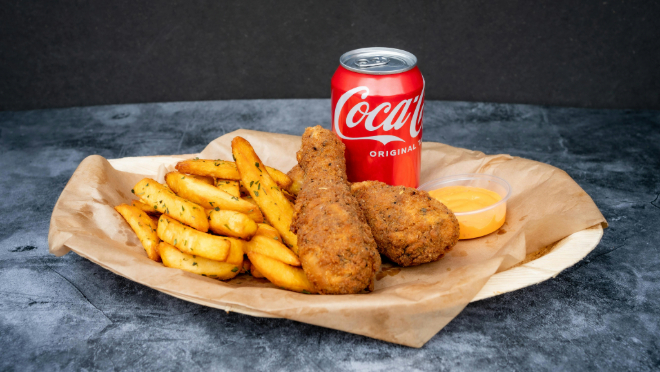Can cola and fries really ease migraines?
Can cola and fries really ease migraines?

Migraines affect over 10 million people in the United Kingdom. The condition can disrupt lives, careers, and health. While there is no known cure, people try many different methods to manage the pain.
One recent trend gaining attention on social media is the so-called “McMigraine Meal”. It includes a glass of full sugar cola and a portion of salty fries. Hundreds of users on TikTok claim it helps them reduce migraine symptoms. But experts are warning people not to place too much hope in fast food.
Nick Cook from Oxfordshire says he always carries pain medication with him. He also drinks cola when he feels a migraine starting. “The sugar and caffeine can sometimes help me last until the end of the day,” he says. However, he adds that it does not replace his prescription medicine, which includes amitriptyline.For 27-year-old Kayleigh Webster, salt from fries sometimes brings slight relief. But she stresses that there is no quick fix. “Migraine is a complex condition. Salt, sugar, and caffeine are not cures,” she says.
Kayleigh has tried many treatments including acupuncture, herbal methods, and different medications. She says that the only treatment that helped her is medical Botox. This involves many injections in the head, face, and neck. The treatment blocks pain signals but doctors are still studying how it works, BBC reports.
Unlike headaches, migraines can last for days and bring a wide range of symptoms. These include, pain in the head or neck, numbness and blurred vision, and problems with movement or speech
Historical records show that even people in ancient Egypt suffered from migraine symptoms. But the true cause remains unclear. Scientists believe it may involve pain signals from blood vessels and nerves around the brain. It is not known why only some people have the condition.
Dr Kay Kennis, a general practitioner and trustee of the Migraine Trust, says there may be a reason why cola helps some people. “Caffeine changes nerve activity. In some cases, that disruption helps reduce pain,” she says. Some pain medicines already contain caffeine.
However, Dr Kennis warns that too much caffeine can make things worse. “It can become a trigger if used too often,” she explains. She also notes that salt might affect nerve function, but the research is still limited. Fast food also contains substances like tyramine, which can trigger severe migraines.
For people like Eloise Underwood, social media hacks have offered no help. She has lived with migraines for years and has tried many suggested remedies. “There are too many false promises online,” she says.
Eloise left several jobs because of noise and lighting that triggered her migraines. She now runs a small business from home and takes special steps to manage her environment. “Migraines have changed my life completely,” she says.
Neurologist Professor Peter Goadsby says that research is finally making progress. New medicines like gepants could block pain signals before the migraine starts. “We are starting to see real results,” he says.
Professor Goadsby also advises people to listen to their body. “Pay attention to early signs like tiredness, mood changes, or craving salt and sugar,” he says. “Stay regular with your routine. Avoid extreme highs and lows.”
Nick Cook follows that advice closely. “I do not drink. I wear sunglasses even when it is cloudy. I carry snacks everywhere,” he says. “This is my life now and my friends understand that.”


